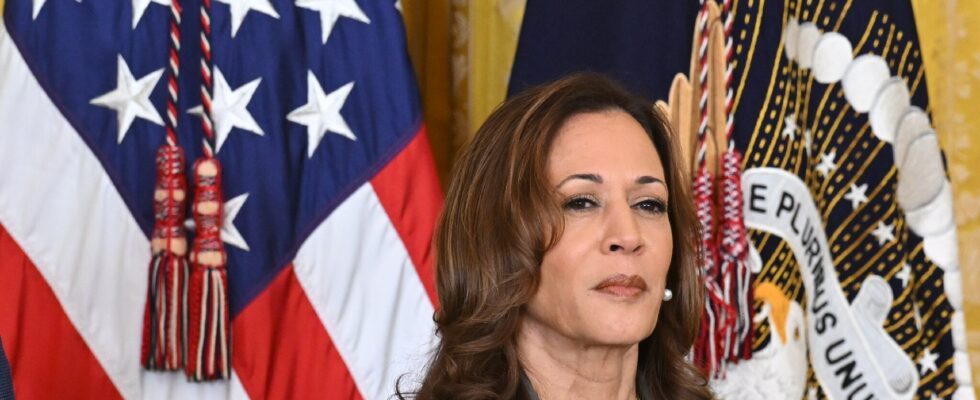In The overall agepublished a few years ago, the British historian Ian Kershaw – also author of a reference biography of Hitler – explained that the 21st century would really begin around the year 2020 (due to the upheavals in tech and emergence of new countries), and not from September 11, 2001 as is often said. Russia’s invasion of Ukraine proved him right. Since February 24, 2022, a new world order – or rather a disorder – has been taking shape, with a cascade of incalculable effects in Europe, the Middle East, and Asia. The 2024 election is therefore the first American presidential election of the 21st century.
The vote and the transition period which will last until January 20 are taking place in an entirely new era, with a lot of uncertainties, new actors and social networks which – as Elon Musk, the owner of perceptions. All this against a backdrop of decline in the leadership of the United States. THE soft power American was once again dented by the dismal spectacle of the 2024 campaign. On the one hand, during one of his last meetings, Donald Trump ended his campaign by using his microphone to mime fellatio; on the other, Kamala Harris, a fragile last-minute candidate, presented neither vision nor program other than her desire to turn the page on Trump. “We are not going back!“(We will not go back), assures its main slogan.
The match is head-on
Expenses of the two campaigns combined exceed… 2.5 billion dollars! The match is head-on, even brutal. “In the past, there were two Americas that hated each other while rubbing shoulders,” notes Franco-American analyst Jeremy Ghez, professor of economics and international affairs at HEC. “Today, these two Americas no longer even speak to each other and don’t know each other.” For her part, Françoise Coste, author of Reagan and specialist in the Republican Party, adds: “When American democracy is sick, the entire Western model is affected.” Now this democratic model which had won the Cold War – a moral victory, above all – was authoritative. It’s over. The North Koreans are in Russia; Iranians in Venezuela; the Russians in Africa and the Chinese everywhere.
Fascinated by dictators (Vladimir Putin) or illiberal leaders (Viktor Orban), Donald Trump tramples on the ideas of American exceptionalism and the pre-eminence of the “free world”. Kamala Harris, for her part, seems to lack historical impregnation. A Californian born to Indian and Jamaican parents, with no ancestors having experienced the world wars, she misunderstands the old Europe as much as Barack Obama who, in his time, was annoyed at having to speak to 27 different people when arriving on the Old Continent. For the first time, the transatlantic relationship seems truly weakened – also due to the fault of NATO’s deadbeats. As for the UN, discredited by its Secretary General Antonio Guterres, who kowtows to the war criminal Vladimir Putin, it now weighs as little as the old League of Nations. Beginning in 1945 with the creation of international institutions and ending with the invasion of Ukraine, the era of pax americana lived.
An election full of uncertainties
The first American president of the “21st century” will arrive in a new world, completely different from 2016 (election of Donald Trump) or 2020 (election of Joe Biden). The election itself presents almost unprecedented characteristics. If Donald Trump is elected, he will have the distinction of serving two non-consecutive terms as President of the United States. This only happened once, in the late 19th century, with Democrat Grover Cleveland who served as both the 22nd and 24th President of the United States. A unique case in presidential history. Donald Trump, who would thus be the 45th and 47th president, is also the first candidate in history to run after being convicted by the courts (in the “Stormy Daniels” affair). The courts will pronounce the length of his sentence after the election. Elected, he would become the first convict in history to reach the White House. Furthermore, Trump was the victim of two assassination attempts during the campaign, which is also unprecedented.
If Kamala Harris wins, she would be the first woman and the first woman of Indian origin to access the White House. Her nomination process as a candidate also followed an extremely rare process. She was chosen by Joe Biden and the Democratic leaders without going through the primary election process within the party. This has only happened once before, in 1968 when unpopular incumbent President Lyndon B. Johnson — like the equally unpopular Joe Biden — withdrew from the race late. The Democrat also designated his vice-president: Hubert Humphrey. A few months later, he was beaten (narrowly) by Republican Richard Nixon who had obtained 500,000 votes more than his opponent.
